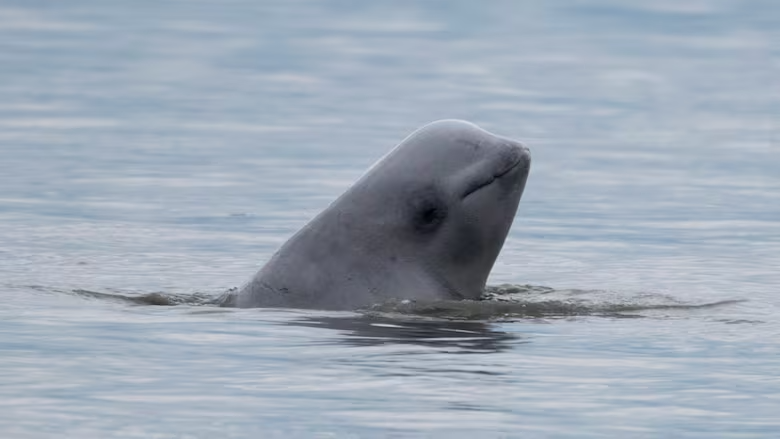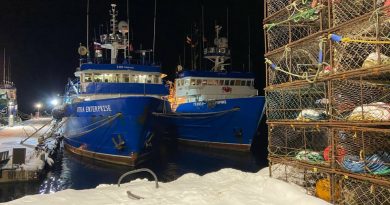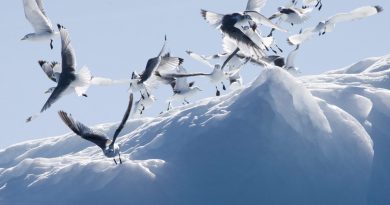Beluga Summit brings together hunters and researchers in Inuvik, N.W.T.

‘The data that we bring to the table, with traditional knowledge and Western science, is top-notch’
Hunters, traditional knowledge holders and scientists have wrapped up the second-ever Beluga Summit in Inuvik, N.W.T.
Almost 100 participants from across the Inuvialuit settlement area and beyond were in attendance for the three-day event that ended Thursday.
The first event was held in Inuvik in 2016, to discuss the local beluga whales and monitor their population.
This week’s gathering saw presentations from local harvesters from all six of the Inuvialuit communities of Aklavik, Inuvik, Paulatuk, Sachs Harbour, Tuktoyaktuk and Ulukhaktok. They gave information on their local beluga populations and how many whales have been harvested.
Researchers and scientists were also in attendance to present their findings.
Sharing with researchers
Herb Nakimayak is the chair of the Fisheries Joint Management Committee (FJMC) that co-hosted the summit. The FJMC is one of the Inuvialuit co-management boards formed under the Inuvialuit Final Agreement.
Nakimayak said the summit is an opportunity for local hunters and knowledge holders to share their experiences and observations with researchers from all over.
“All the Inuvialuit communities in the ISR [Inuvialuit Settlement Region] are here today and their research partners which are from out of territory,” said Nakimayak.
According to Nakimayak, bridging the gap between traditional knowledge and Western science is what the summit is all about.
He hopes that other Indigenous-led research will take from their model and use it in their own work with wildlife monitoring.
“We’re improving the way research is done on species, just this species, but it could also be a good template for Indigenous knowledge on many other species that are monitored — not just in the Arctic, but all around the world,” he said.
Nakimayak said the data shows that tracking whale populations has gotten more accurate and less invasive to the belugas.
“We spoke about things like tagging in the past, drones and all different types of technology that aren’t as invasive, to ensure that we are not putting too much pressure on the beluga that we rely on for nutrients,” said Nakimayak.
Northern research
Jimmy Kalinek of Inuvik was one of the participants at the summit. He said he wasn’t at the first summit in 2016, but has been on the land his whole life and has information he gathered from local elders, friends and family who would also travel to hunt and harvest their own food.
“The knowledge that I bring to the table is from our past elders, and from the teachers that taught me, and friends that have a lot of knowledge that share with me,” said Kalinek.
“Just being out there harvesting, and practicing that harvest and teaching it, is very important to myself and the Inuvialuit people.”
During the presentations and discussions at the summit, Kalinek said it became apparent that the Inuvialuit were taking the right approach to northern research.
“The data that we bring to the table, with traditional knowledge and Western science, is top-notch,” he said.
“Everybody is like, ‘wow, you guys are doing a really good job up there,’ and I think there’s a real sense of pride in that — and all Inuvialuit should be proud of that.”
Related stories from around the North:
Canada: Arctic sea-ice melt could mean big trouble for tiny microbes says study, Eye on the Arctic
Greenland: Alarming, above-average ice loss in Greenland due to rising temperatures, Eye on the Arctic
Norway: Polar heat record. July average above 10°C, The Independent Barents Observer
Sweden: High risk of wildfires in many parts of Sweden, including North, Radio Sweden
United States: Bursting ice dam in Alaska highlights risks of glacial flooding around the globe, The Associated Press



